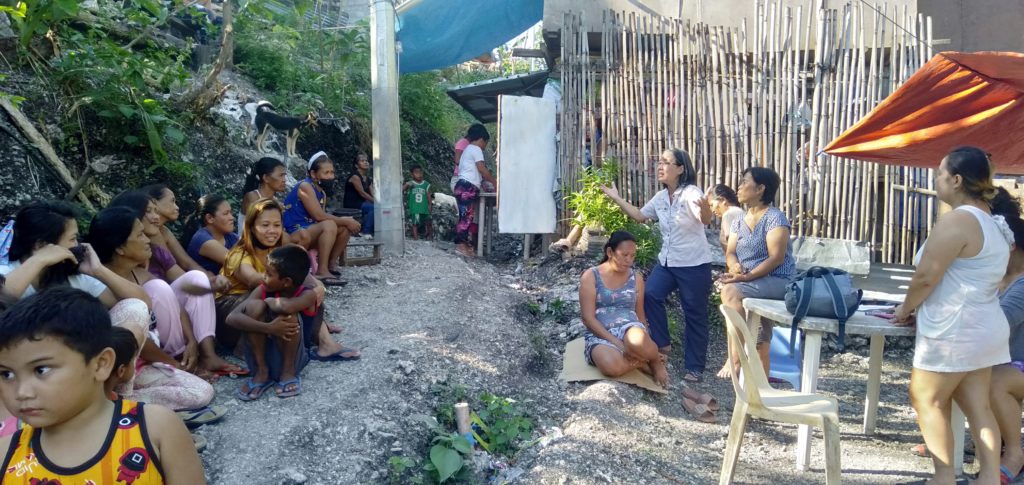Health services continue today in Barangay Sto. Nino in the municipality of San Miguel and Barangay Caluasan in the municipality of Dagohoy where a health program was established by the VPHCS with the support of the Asian Community Trust (ACT) in Japan.
Two training centers in the barangays built during the project serve as venues where medical check ups, processing of herbal medicine, ventusa, acupressure, meetings and other services are conducted by trained community health workers (CHW).
The first year, April 2010 to March 2011 had laid down the groundwork of their CBHP. Capacity building activities were conducted among leaders of the people’s organizations (PO) and community health workers (CHWs) which subsequently enabled them to provide health information and basic services to the people such as home remedies for common health complaints.
In the second year, the CHWs whose skills were further enhanced through additional trainings, guided the people to better understand about nutrition, family planning and contraception, hypertension, control of acute respiratory tract infections, and control of diarrheal diseases, among others. Trained CHWs also promoted early health seeking behavior, continued to render basic health services, and identified and referred hypertensive patients.
The three years of the project from April 2010 to March 2013 have witnessed how the farmers in the two barangays through their organizations, the MALALA or the Mag-Uuma sa LACALSANDA Batok sa Land Levelling (Farmers in Lacalsanda against Land Levelling) in the barangays have collectively addressed their long-standing health problems towards the goal of reducing the prevalence of preventable and communicable diseases in their communities.The second year also started a nutrition program to address the problem of malnutrition among preschoolers in both barangays.
A family planning program provided access of contraceptive commodities to benefit couples in Caluasan who desired to limit the number and space their children.
With special skills trainings, the CHWs were able to sustain their ongoing health campaigns including the nutritional rehabilitation of malnourished children, promotion of proper nutrition, family planning, control of hypertension, and provision of essential herbal and rational Western medicines.
Networking with local government officials, health center personnel and non-government agencies further enabled the people’s organizations to address the problem of the lack of medicines and essential health services and generate support for their health programs.
The third and last year that ended in March 2013 further sustained the tremendous gains garnered in the first two years.
Indeed, community participation was the key through which the people led by their organizations, formulated, implemented and evaluated their respective community health plans to ensure that they truly addressed their health needs.



